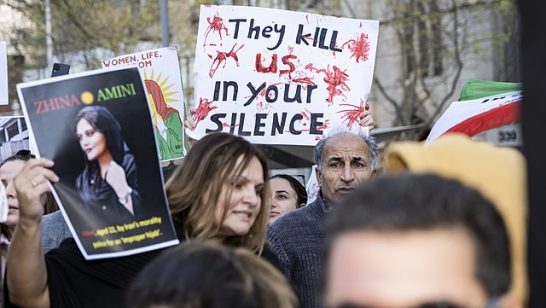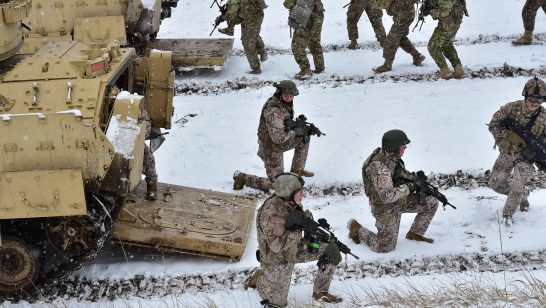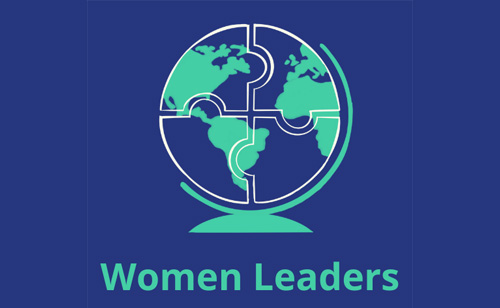
Gender mainstreaming is increasingly gaining ground in discussions on arms control and disarmament. Driving this trend have been civil society actors, scholars, and governments. Among the latter, some have decided to adopt a Feminist Foreign Policy (FFP). Sweden established itself as a pioneer of this movement when it announced in 2014 that it would systematically apply a gender equality perspective in its foreign policy. Nine more countries have since done the same, including Chile, Germany, and the Netherlands in 2022 alone. Speaking at a conference just a few months after the official announcement, the Dutch representative noted that while the Netherlands has long been a champion of gender equality, the government had now decided to put a “put an FFP ring on it”.
While FFPs have brought much needed attention to the human rights of women, their impact on international security has been felt more timidly. As more countries embark on the FFP path, they should be mindful of this gap and take concrete steps to build on ongoing efforts to mainstream gender considerations in the field of arms control and disarmament. Here, I outline specific examples of how gendered approaches are changing the way we think, negotiate, and implement arms control. I also explore ways in which FFP countries could strengthen gender mainstreaming efforts by being ambitious in how they conceptualise arms control and by taking action to build gender expertise in this field.
New thinking
Interest in gender perspectives has opened the door for new research areas. In the past five years, there has been new data and analysis regarding the differentiated impact of weapons on various groups of society, from small arms and light weapons to weapons of mass destruction. There have been new studies about the relationship between gender and access to technical training in the arms control field, as well as participation in disarmament diplomacy. Another avenue of research has explored the synergies between arms control and disarmament, on the one hand, and the Women, Peace and Security (WPS) agenda, on the other. Feminist and intersectional approaches have also led to renewed interrogations of militarised discourses in international security, including in global nuclear politics.
This growing body of work has helped to broaden the scope of debates in arms control and disarmament and shape new ways of thinking. A people-centred, gendered approach is increasingly reflected in working papers, resolutions, and outcome documents of arms control and disarmament processes. One example is the growing share of gender-sensitive resolutions approved by the UN First Committee Disarmament and International Security, up from 25% in 2018 to 31% in 2021. Also in 2021, all of the outcome documents adopted in the main conventional arms processes (Anti-Personnel Mine Ban Convention, Arms Trade Treaty, Convention on Cluster Munitions, and Programme of Action on Small Arms and Light Weapons) included issues related to gender. Alongside calls for harmonisation of national policies on weapons and the WPS agenda, for example, there was support for the equal, full and effective participation of women in all decision-making and implementation processes.
More and more diplomats, experts and practitioners are now presenting their views in terms that go beyond weapons and address the needs of real people, be they women, men, boys, girls, or non-binary people. In practice, this means a broadening of the scope of arms control and a strengthening of its linkages with other policy areas, such as conflict prevention and social development.
Diverse representation in negotiations
Initiatives focused on gender equality in arms control and disarmament are changing perceptions about who is considered an expert in this area. In 2018, UN Secretary General Antonio Guterres expressed his commitment to achieving gender parity in expert groups established under his auspices. Since then, the average proportion of women designated as members of Governmental Expert Groups in the field of disarmament has gone from less than 25% to more than 40%.
Other initiatives are changing who gets to speak in multilateral meetings. One example is the “Women in Cyber” fellowship, which was established by Australia, Canada, the Netherlands, New Zealand and the United Kingdom to support the participation of women diplomats in cybersecurity processes, mainly the UN Open-Ended Working Group on ICTs in international security. In just a couple of years, the level of women’s engagement in that forum significantly increased, with 49% of official statements at the latest session (March-April 2022) being delivered by women. This is unprecedented in multilateral meetings on international security, where, on average, women’s voices account for no more than 30% of the statements delivered.
Gender diversity in multilateral bodies and negotiation processes can be a means to increase the diversity of perspectives and enhance effectiveness. Research has shown that diversity triggers more careful information processing, which is absent in homogeneous groups. As a study from the Open Society Foundations noted, “when the same people talk about the same issues together, they tend to come to the same conclusions over and over. To break this pattern, fresh perspectives are needed on democracy, security and economics.” In this sense, it would be important to take additional steps to make negotiations more accessible to a greater diversity of people, including survivors and their representative organisations.
Gender-responsive implementation
Another type of change relates to the implementation of gender-related treaty obligations. The Arms Trade Treaty, for example, includes a provision aimed at ensuring that weapons transferred from one country to another will not be used to commit gender-based violence. Conventions banning anti-personnel mines, cluster munitions and nuclear weapons, as well as their respective action plans, require States Parties to provide age- and gender-sensitive assistance to survivors under their jurisdiction. This type of provision is important as it acknowledges differential impacts while also stipulating equal access to assistance.
Though these provisions are not new, States Parties have taken a novel approach by appointing Gender Focal Points to support gender mainstreaming in the implementation of these agreements. This decision was first taken by States Parties to the Anti-Personnel Mine Ban Convention (APMBC) during the 2019 Review Conference in Oslo. In 2021, States Parties to the Convention on Cluster Munitions (CCM) followed a similar path, tasking specific coordinators to act as Gender Focal Points. In 2022, the Vienna Action Plan adopted by the States Parties to the Treaty of the Prohibition of Nuclear Weapons (TPNW) established a Gender Focal Point to provide support and report on progress towards gender mainstreaming in Treaty implementation.
It is still too soon to assess the impact of these new working methods in arms control and disarmament. However, we can already see that greater attention is being paid to matters related to gender, with gender mainstreaming becoming an agenda item for official debates and informal consultations alike. As Gender Focal Points continue to develop their work in multilateral arms control and disarmament, it will be interesting to see if they can initiate and support actions beyond the realm of assistance. The room for action will certainly vary according to the various mandates, structures, and resources available within each multilateral agreement. In the TPNW, for instance, the Gender Focal Point could potentially work with the Scientific Advisory Group to ensure gender experts are integrated into that body. In the near future, a comparative analysis of the work of the various Gender Focal Points could be useful to draw lessons about organisational practices sustaining or impeding gender mainstreaming in multilateral treaties.
“Putting an FFP ring on it”
Since Sweden’s introduction of its Feminist Foreign Policy back in 2014, the concept has been used to advocate for gender equality and the human rights of women with varying degrees of success across different policy areas. It is indisputable that FFPs have brought much needed attention to issues of women’s economic empowerment, as well as sexual and reproductive health and rights. However, feminism often appears to be siloed away from international security. As more countries decide to “put an FFP ring” on their foreign policy, they should be mindful of this gap and make conscious efforts to implement feminist approaches in arms control and disarmament.
The good news is that FFP countries can build on ongoing efforts towards gender mainstreaming and look for ways to strengthen them. To that end, FFP countries, along with gender champions and allies, could work towards greater institutionalisation and appreciation of gender expertise in arms control and disarmament. Through funding and political support, countries could encourage research in this area while also establishing gender advisors in secretariats and implementation support units. Feminist governments could lead by example by adding gender experts to their own arms control and disarmament delegations, as well as survivors and their representative organisations. They could also engage with or take up Gender Focal Point roles in order to advance dialogue and action on gender within the distinct conventions.
These practical efforts should be accompanied by a normative reconceptualisation of arms control, and one that goes beyond the minimalist view of arms reduction. Taking a feminist stance in this policy area offers governments an opportunity to be ambitious and conceptualise arms control as an effort not only to reduce weapons, but also to reduce the harm caused by weapons, to support survivors, to hold perpetrators accountable, to empower women and non-binary people, and to build resilient societies.
The opinions articulated above represent the views of the author, and do not necessarily reflect the position of the European Leadership Network (ELN) or any of the ELN’s members. The ELN’s aim is to encourage debates that will help develop Europe’s capacity to address pressing foreign, defence, and security challenges.



